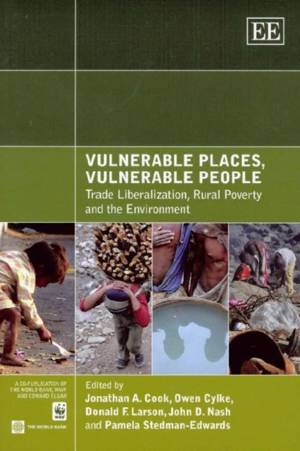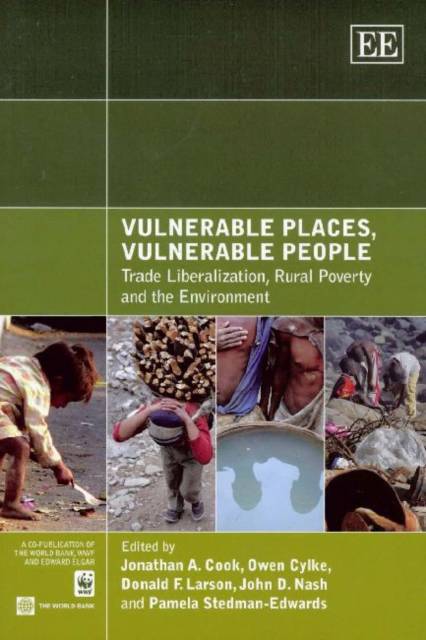
- Afhalen na 1 uur in een winkel met voorraad
- Gratis thuislevering in België vanaf € 30
- Ruim aanbod met 7 miljoen producten
- Afhalen na 1 uur in een winkel met voorraad
- Gratis thuislevering in België vanaf € 30
- Ruim aanbod met 7 miljoen producten
Zoeken
Vulnerable Places, Vulnerable People
Trade Liberalization, Rural Poverty and the Environment
€ 45,95
+ 91 punten
Omschrijving
While some argue that trade liberalization has raised incomes and led to environmental protection in developing countries, others claim that it generates neither poverty reduction nor sustainability. The detailed case studies in this book demonstrate that neither interpretation is universally correct, given how much depends on specific policies and institutions that determine 'on-the-ground' outcomes. Drawing on research from six countries around the developing world, the book also presents the unique perspectives of researchers at both the world's largest development organization (The World Bank) and the world's largest conservation organization (World Wildlife Fund) on the debate over trade liberalization and its effects on poverty and the environment. The authors trace international trade rules and events down through national development contexts to investigate on-the-ground outcomes for real people and places. The studies underscore the importance of evaluating trade from a perspective that pays attention to environmental and social vulnerability and understands the linkages between poverty reduction and environmental protection. The lessons drawn provide a critical first step in developing the appropriate response options needed to ensure that trade plays a positive role in promoting truly sustainable development.
Specificaties
Betrokkenen
- Uitgeverij:
Inhoud
- Aantal bladzijden:
- 224
- Taal:
- Engels
- Reeks:
Eigenschappen
- Productcode (EAN):
- 9780821380994
- Verschijningsdatum:
- 22/04/2010
- Uitvoering:
- Paperback
- Formaat:
- Trade paperback (VS)
- Afmetingen:
- 155 mm x 231 mm
- Gewicht:
- 358 g

Alleen bij Standaard Boekhandel
+ 91 punten op je klantenkaart van Standaard Boekhandel
Beoordelingen
We publiceren alleen reviews die voldoen aan de voorwaarden voor reviews. Bekijk onze voorwaarden voor reviews.










